
-
 Afrikaans
Afrikaans -
 Albanian
Albanian -
 Amharic
Amharic -
 Arabic
Arabic -
 Armenian
Armenian -
 Azerbaijani
Azerbaijani -
 Basque
Basque -
 Belarusian
Belarusian -
 Bengali
Bengali -
 Bosnian
Bosnian -
 Bulgarian
Bulgarian -
 Catalan
Catalan -
 Cebuano
Cebuano -
 Corsican
Corsican -
 Croatian
Croatian -
 Czech
Czech -
 Danish
Danish -
 Dutch
Dutch -
 English
English -
 Esperanto
Esperanto -
 Estonian
Estonian -
 Finnish
Finnish -
 French
French -
 Frisian
Frisian -
 Galician
Galician -
 Georgian
Georgian -
 German
German -
 Greek
Greek -
 Gujarati
Gujarati -
 Haitian Creole
Haitian Creole -
 hausa
hausa -
 hawaiian
hawaiian -
 Hebrew
Hebrew -
 Hindi
Hindi -
 Miao
Miao -
 Hungarian
Hungarian -
 Icelandic
Icelandic -
 igbo
igbo -
 Indonesian
Indonesian -
 irish
irish -
 Italian
Italian -
 Japanese
Japanese -
 Javanese
Javanese -
 Kannada
Kannada -
 kazakh
kazakh -
 Khmer
Khmer -
 Rwandese
Rwandese -
 Korean
Korean -
 Kurdish
Kurdish -
 Kyrgyz
Kyrgyz -
 Lao
Lao -
 Latin
Latin -
 Latvian
Latvian -
 Lithuanian
Lithuanian -
 Luxembourgish
Luxembourgish -
 Macedonian
Macedonian -
 Malgashi
Malgashi -
 Malay
Malay -
 Malayalam
Malayalam -
 Maltese
Maltese -
 Maori
Maori -
 Marathi
Marathi -
 Mongolian
Mongolian -
 Myanmar
Myanmar -
 Nepali
Nepali -
 Norwegian
Norwegian -
 Norwegian
Norwegian -
 Occitan
Occitan -
 Pashto
Pashto -
 Persian
Persian -
 Polish
Polish -
 Portuguese
Portuguese -
 Punjabi
Punjabi -
 Romanian
Romanian -
 Russian
Russian -
 Samoan
Samoan -
 Scottish Gaelic
Scottish Gaelic -
 Serbian
Serbian -
 Sesotho
Sesotho -
 Shona
Shona -
 Sindhi
Sindhi -
 Sinhala
Sinhala -
 Slovak
Slovak -
 Slovenian
Slovenian -
 Somali
Somali -
 Spanish
Spanish -
 Sundanese
Sundanese -
 Swahili
Swahili -
 Swedish
Swedish -
 Tagalog
Tagalog -
 Tajik
Tajik -
 Tamil
Tamil -
 Tatar
Tatar -
 Telugu
Telugu -
 Thai
Thai -
 Turkish
Turkish -
 Turkmen
Turkmen -
 Ukrainian
Ukrainian -
 Urdu
Urdu -
 Uighur
Uighur -
 Uzbek
Uzbek -
 Vietnamese
Vietnamese -
 Welsh
Welsh -
 Bantu
Bantu -
 Yiddish
Yiddish -
 Yoruba
Yoruba -
 Zulu
Zulu
CNC Thread Rolling Machine with AI Technology | High Precision
The global demand for cnc thread rolling machine solutions—including flat thread rolling machine, hydraulic threading machine, and mini thread rolling machine—has witnessed a strong annual growth, driven by advanced manufacturing in automobile, petrochemical, metallurgy, and infrastructure sectors. According to MRFR industry reports, the global thread rolling machine market size reached $477 Million in 2023, expected to grow at 4.4% CAGR through 2028.
- High efficiency and repeatability in thread production.
- Superior thread quality compared to cutting methods.
- Energy saving & material preservation due to cold-forming technology.
- Application diversification: anchor bolts, fasteners, rods, tubes, and custom-shaped threads.
Leading suppliers, including Mote Tools, Nakanishi, Tesker, and Profiroll, are continuously innovating in digital control, modularity, eco-friendliness and real-time process monitoring, making modern cnc thread rolling machine one of the cornerstones in "Industry 4.0" precision engineering.
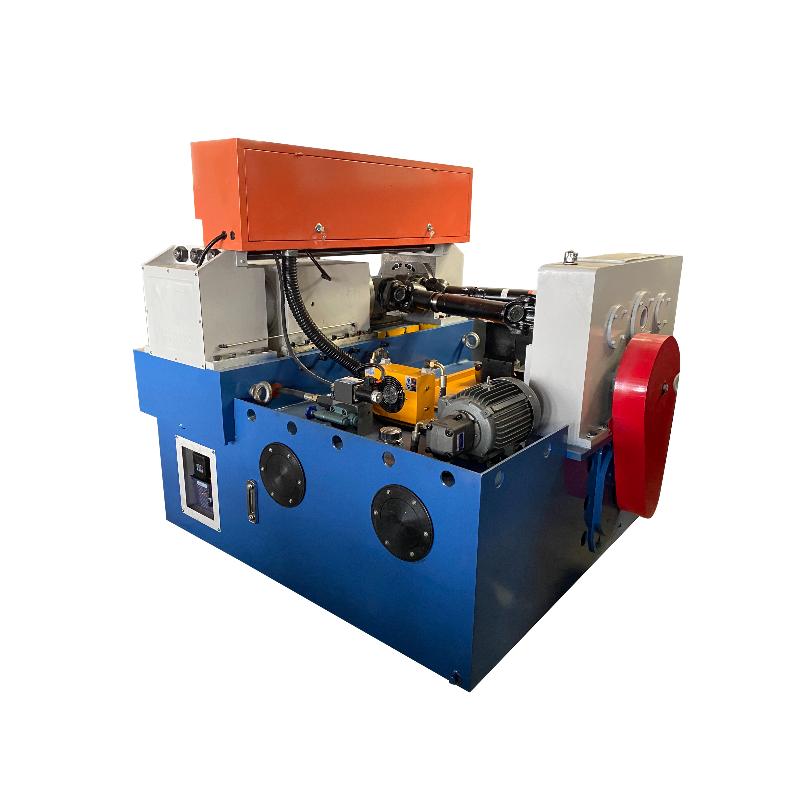
Supplier: Mote Tools
Product Link: View Product Details
Industry Certifications: ISO 9001, CE, ANSI ISO2858
Suitable Industries: Petrochemical, Metallurgy, Construction, Water Supply & Drainage, Mining, Energy
| Model | Thread Diameter (mm) | Thread Pitch (mm) | Rolling Speed (m/min) | Motor Power (kW) | Max. Feed Length (mm) | Machine Weight (kg) | Certifications |
|---|---|---|---|---|---|---|---|
| Z28-650 | 8–64 | 0.5–6.0 | 10–20 | 15 | 650 | 3700 | ISO / CE / ANSI |
| T45 CNC | 6–42 | 0.75–5.0 | 15–30 | 11 | 450 | 2450 | ISO / CE |
| Anchor Bolt Stainless Rod Model | 8–36 | 0.75–4.0 | 18–25 | 9 | 830 | 1450 | ISO / CE |
| Mini-M6 | 3–12 | 0.5–2.0 | 12–25 | 2.2 | 200 | 480 | ISO |
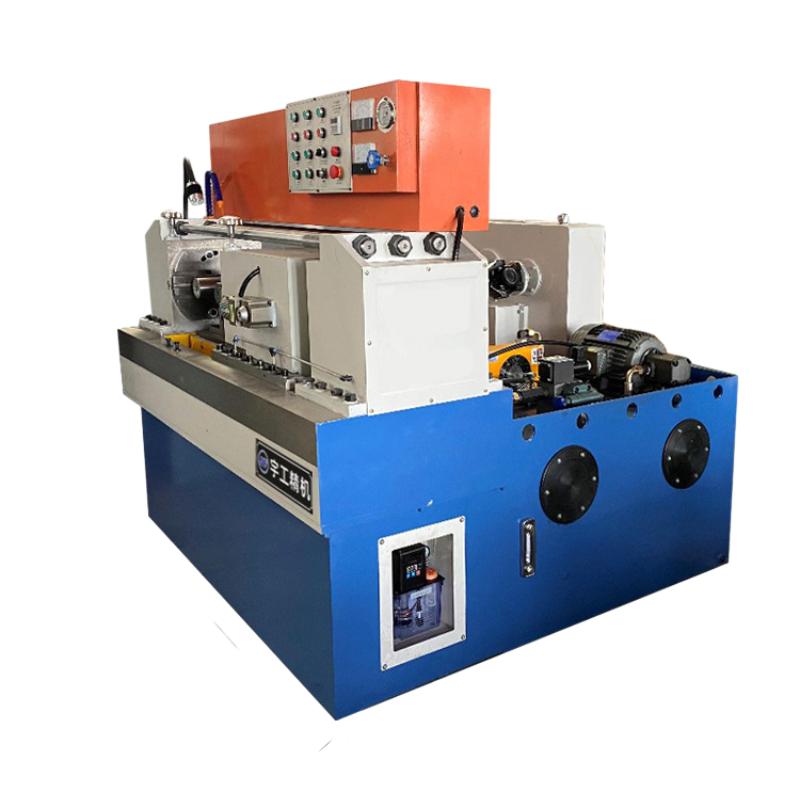
Manufacturing Techniques: Precision cast/forged blanks are CNC machined for accuracy & surface integrity. Thread rolling utilizes cold-forming technology, enhancing work-hardening and fatigue resistance by ~30% (3rd party: Springer JME).
Thread Profile: Metric, UNC, BSPT, Acme, Trapezoidal, custom profiles per JIS/ANSI/DIN standards.
Inspection: Each thread batch is verified for dimensional conformity (ISO2858, ASTM A370), roughness (RaUsage Life: >1,000,000 cycles per tool set. Warranty up to 18 months.
Applications: Anchor bolts for bridges/buildings, pipe rod connectors for oil/gas, threaded rods in heavy equipment, stainless fittings in chemical resistant pipelines, etc.
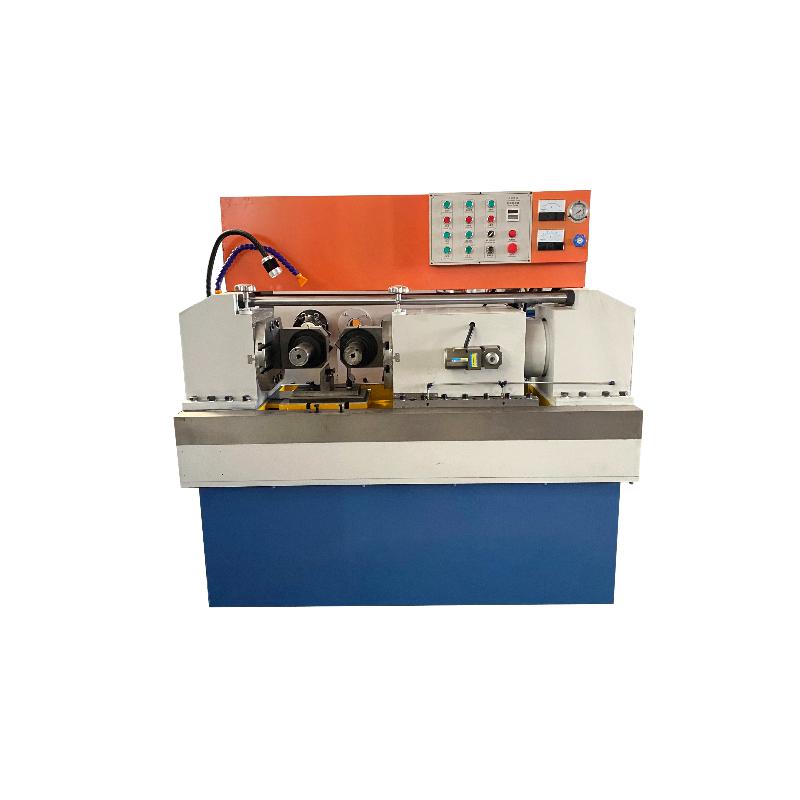
| Machine Type | Max Diameter (mm) | Control Level | Torque Output | Adaptive Dies | Energy Consumption | Cycle Time (s) | Thread Accuracy (μm) | Applications |
|---|---|---|---|---|---|---|---|---|
| CNC Thread Rolling Machine | 64 | Full CNC, HMI | Medium-High | Automatic | Low | 8–12 | ±4 | Precision rods, anchor bolts, special threads |
| Flat Thread Rolling Machine | 40 | Manual/Semi-auto | Medium | Manual | Medium | 15–18 | ±8 | Standard bolts, short rods |
| Hydraulic Threading Machine | 100 | PLC/Manual | High | Manual | High | 25–35 | ±10 | Large diameter rods, pipeline joints |
| Mini Thread Rolling Machine | 12 | Manual | Low | Manual | Very Low | 10–16 | ±8 | Small precision screws, electronics |
Hydraulic: Best for large, high-strength rods.
Flat/Mini: Lower cost, best for standard or small batch jobs.
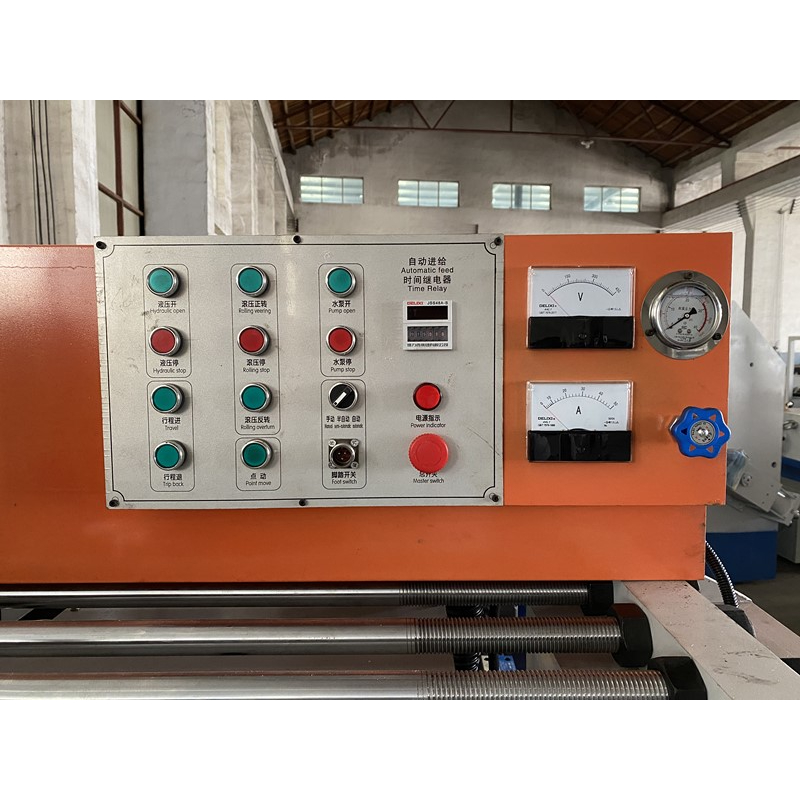
- Large bridge construction: Anchor bolts and expansion rods, corrosion-resistant, strong fatigue resistance.
- Oil & gas pipelines: Threaded connectors and coupling rods requiring ASTM & ISO standards.
- Industrial water systems: Stainless rod threads, high flow, anti-leakage performance.
- Metallurgical plants: Heavy-duty rolled threads for bespoke rods/screws sustaining frequent load cycles.
- Energy infrastructure: Anchor rods as wind turbine foundation, tailored for severe climate and salt spray corrosion resistance.
- OEM Fastener Suppliers: Customized threading for non-standard bolts—reducing production cycle by 35% with cnc thread rolling machine integration.
“After deploying Mote Tools' cnc thread rolling machine in our steel structure workshop, thread defect rates dropped below 0.2%, with energy consumption cut by 27%. The rapid die-change capability and digital control have transformed our anchor bolt production.”—Quality Director, National Bridge Engineering Co., Ltd.
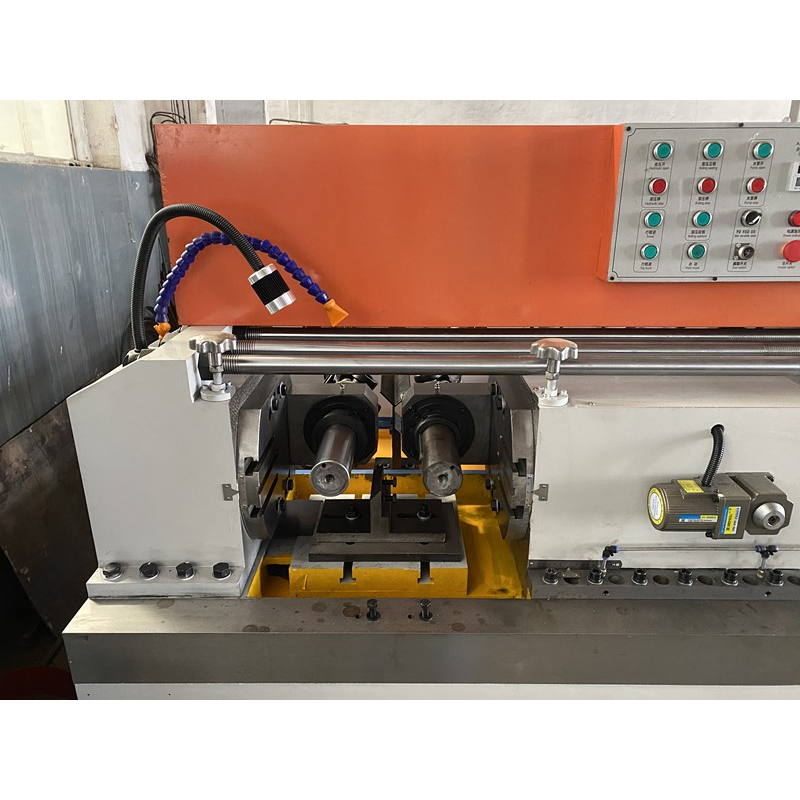
- Custom die design for special thread profiles and shapes.
- Adaptation for high-strength alloys, titanium, duplex stainless steels.
- Automatic loading/unloading system integration for smart factories.
- On-site operator training, remote fault diagnostics (Industry 4.0 ready).
- Sample making, destructive/non-destructive test reporting, and full PPAP documentation.
Global Warranty: 18-month warranty + lifetime technical online support.
Spare Parts & Aftermarket: Rapid supply, dedicated support lines, and 72h on-site service in Asia/Europe.
1. What are the material grades supported by cnc thread rolling machine?
2. What thread profiles can be produced?
3. How accurate is the thread pitch and root diameter?
4. Does the machine support ISO auditing and traceability?
5. Which lubrication and cooling solutions does the machine use?
6. How is operator safety ensured?
7. What is the typical die life and how can it be maximized?
- Industry Experience: 22+ years continuous R&D and application support.
- Certifications: All products ISO9001, CE, ANSI compliant. Third-party testing available (TÜV, SGS, Intertek).
- Partners: Trusted by Siemens, PetroChina, Hyundai Engineering, and major EPCs worldwide.
- Recognition: Multiple patents in thread rolling dies & CNC control algorithms (China & international).
- Referenced in: eFunda Thread Rolling Process Guide, “Journal of Manufacturing Processes”, “International Journal of Advanced Manufacturing Tech.”
Quality Guarantee: 18 months warranty; easy claim process; official ISO/CE/ANSI certificates supplied.
Support: 24/7 hotline/email, on-site training, lifetime online troubleshooting.
Spare Parts: Permanent stock for all models, expedited worldwide shipping available.
Test Reports: Material, thread, and fatigue test with every batch shipped.
Trust Commitment: Your business is protected by global service guarantee and certified quality standards.
- “Analysis of Thread Rolling Machines — Process Selection for High Strength Fasteners”, Springer JME
- “Global Thread Rolling Machine Market Research Report 2023-2028”, MRFR
- “Thread Rolling – eFunda Engineering Fundamentals”, eFunda
- “Threaded Fasteners: Fatigue and Durability Analysis”, ASTM Threaded Fastener Symposium
- “Int'l Journal of Advanced Manufacturing Technology”, Springer
- "China Fastener Industry Official Forum", CFI Forum
